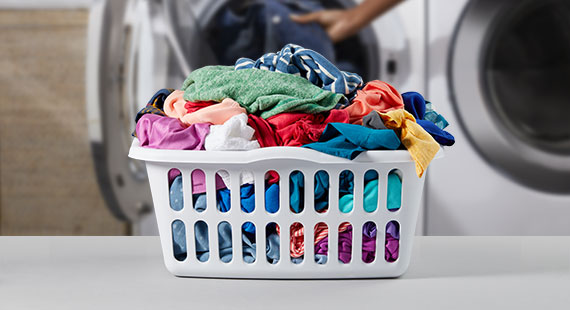:max_bytes(150000):strip_icc()/stay-on-top-of-household-laundry-0522-d346ddbd182d4558bb8d459936bc5e58.jpg)
Invisible labor is work that goes unnoticed and unacknowledged, and it is common for women in households. One of the mothers’ most significant forms of invisible labor is laundry. This labor is invisible because it is not typically considered “work” in the traditional sense and is often undervalued and overlooked.
Laundry is a time-consuming, complex, and emotionally taxing task with significant physical, mental, and economic consequences for mothers. It is essential to recognize and address this issue to support mothers and create a more equitable division of labor within households.
By understanding and valuing the invisible labor of laundry, we can take steps to promote gender equality and improve the lives of mothers and families.
Gendered Nature of Laundry and Household Responsibilities
The gendered division of labor in households has its roots in historical and cultural factors that have shaped gender roles and expectations. Throughout history, women have been relegated to the domestic sphere, while men have been associated with paid work outside the home. This division of labor has been reinforced by cultural norms and expectations that have assigned women the primary caregiving responsibility, including laundry tasks.
The negative effects of this gendered division of labor are significant, especially for women. Women bear the burden of invisible labor, leading to physical and mental exhaustion, burnout, and a lack of time for self-care or pursuing personal interests. This division of labor also reinforces traditional gender roles, limiting women’s opportunities to participate in paid work outside the home and contributing to the gender pay gap. Moreover, it reinforces gender stereotypes and can limit the potential for children to see an equal distribution of household tasks, perpetuating the cycle of gendered labor expectations for future generations.
Impact of Invisible Labor of Laundry on Moms
The invisible labor of laundry can have several negative impacts on the lives of moms. Constant demands of caregiving and household tasks such as laundry can affect the physical and mental health of mothers. Stress, lack of sleep, and exhaustion can lead to health problems such as anxiety, depression, and chronic fatigue.
Unequal distribution of household tasks, including laundry, can cause strain on relationships between partners. It can lead to resentment and frustration, particularly if one partner is not acknowledging or helping with the workload. This strain can also extend to relationships with children, as mothers may not have as much time or energy to devote to them.
Moreover, the invisible labor of laundry can also have economic consequences for mothers. It can limit their ability to participate in paid work outside the home, affecting their career opportunities and earning potential. Additionally, the cost of services such as wash and fold can be prohibitive, further exacerbating the economic consequences.
One solution to address the burden of invisible labor is to consider using services such as wash and fold. These services can alleviate some of the time and labor involved in doing laundry, allowing mothers to focus on other tasks and priorities. However, it is essential to acknowledge that this option may only be feasible for some due to economic constraints. Moreover, recognizing and addressing the root causes of gendered labor expectations is critical to creating a more equitable distribution of household tasks and supporting mothers long-term.
How to Address These Challenges Faced by Moms
Moms can implement strategies such as doing smaller loads of laundry more frequently, using a laundry pickup and delivery service to save time, and using tools such as stain removers to reduce the complexity of laundry tasks.
Besides relying on laundry services, you can delegate household tasks to alleviate some of your burdens. For example, partners can take on more responsibility for sorting, folding, and putting away clothes, and children can learn to do their laundry from a young age.
It is essential to recognize and value the invisible labor of laundry and its impact on moms. Partners can show appreciation for the work done and help share the workload more equally.
Lastly, policymakers and employers should work to create policies that support working parents, such as flexible work arrangements and access to affordable childcare.
Final Takeaway
Recognizing and addressing the invisible labor of laundry is essential for supporting moms and promoting gender equality. Moms face numerous challenges in doing laundry, from the time-consuming nature of the task to the lack of recognition and appreciation for their work. The burden of this labor can negatively impact their physical and mental health, relationships, and economic opportunities.

Individuals and society must take action to address these challenges. As individuals and members of society, we are responsible for supporting moms and promoting gender equality by recognizing and addressing the invisible labor of laundry and other domestic work. By taking action, we can help to create a more equitable distribution of household tasks, support the well-being of moms and families, and promote gender equality.

